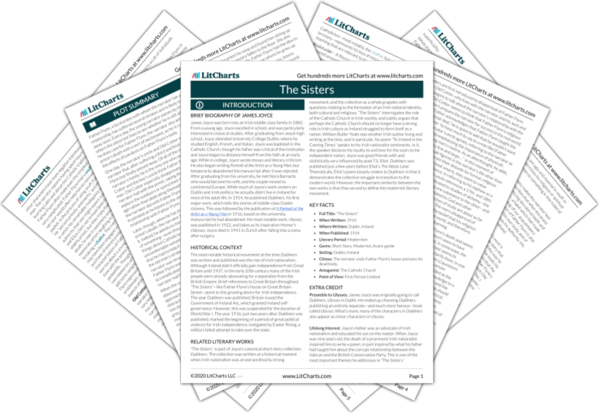Previous
Rosicrucian
|
Previous
Rosicrucian
|
Simony Term Analysis |
Next
Symbols
|
Every night as I gazed up at the window I said softly to myself the word paralysis. It had always sounded strangely in my ears, like the word gnomon in the Euclid and the word simony in the Catechism. But now it sounded to me like the name of some maleficent and sinful being. It filled me with fear, and yet I longed to be nearer to it and to look upon its deadly work.

Unlock explanations and citation info for this and every other The Sisters quote.
Plus so much more...
Get LitCharts A+